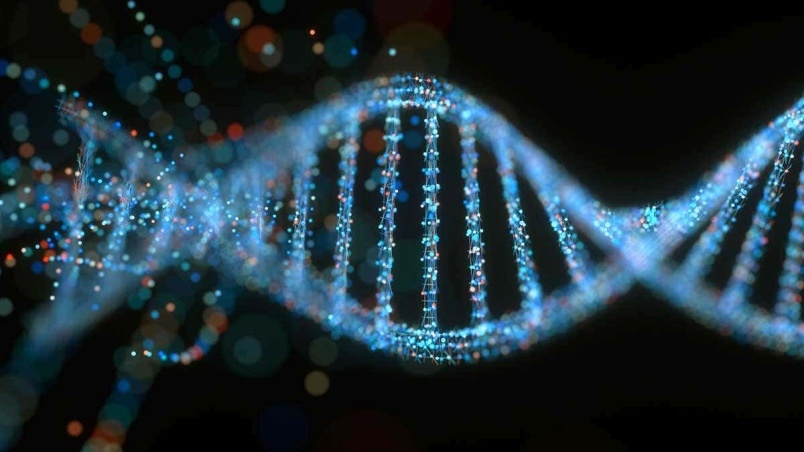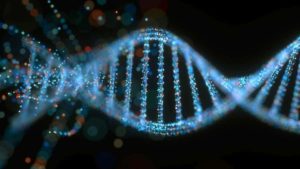Metabolic functional (epi)genomics and their abnormalities in type 2 diabetes and related disorders
INSERM/CNRS UMR 1283/8199 – Lille University – CHU Lille – Institut Pasteur de Lille

Presentation
Type 2 diabetes (T2D) and associated disorders including obesity have reached global pandemic proportions and are leading causes of morbidity and mortality, becoming a major burden on public health. T2D results from the progressive alteration of insulin secretion from pancreatic β cells (within islets) on a background of impaired insulin action in sensitive organs and tissues. Obesity is clinically defined as a body mass index (BMI) above 30 kg/m². Failure to fully understand the multi-organ systemic pathophysiology of T2D and obesity has frustrated efforts to develop improved therapeutic and preventive strategies.
Whilst the environment is the key determinant for T2D and obesity at the population level, one remarkable feature is the persistence of considerable individual disease risk amongst people sharing the same environment. T2D and obesity are complex polygenic disorders, with an estimated heritability of 40-70%. So far, through genome-wide association studies (GWAS), we and others have identified several hundreds of susceptibility genes for T2D risk and BMI. However, the main challenge is that > 90% of GWAS loci lie in non-coding intronic or intergenic regions, therefore, obtaining functional and mechanistic insights into how these DNA variants impact disease risk is so far an unmet objective that needs to be better addressed.
The main goal of the team is to improve care and life expectancy without disability of patients with T2D and other metabolic disorders including obesity, via the identification of new pathways involved in pathophysiology leading to the discovery of new drug targets, and the identification and characterization of specific genetic variants leading to precision and when possible personalized medicine.
Highlights
- National Center for Precision Medicine on Diabetes – PreciDIAB (PI: Philippe Froguel)
- ERC Consolidator Grant OpO (PI: Amélie Bonnefond)
- Horizon Europe Obelisk (PIs : Amélie Bonnefond and Philippe Froguel)
- Obesity is a complex, multifactorial disorder. About 5% of obese patients actually present with a monogenic form of obesity where only one mutation is sufficient to cause the disease. So far, the genes that have been found to be mutated in these monogenic forms play a key role in the leptin/melanocortin pathway which is mainly active in the hypothalamus and which regulates food intake and energy expenditure. Our laboratory has recently reported a novel monogenic form of obesity due to MRAP2 deficiency where, contrary to previously described monogenic forms of obesity, the carriers presented with hyperglycemia and hypertension in addition to obesity, suggesting that MRAP2 might play a pleiotropic role in metabolic tissues, in addition to its role in brain control of food intake and energy expenditure. This study has been published in Nature Medicine in 2019.
- Genome-wide association studies have identified 240 independent loci associated with type 2 diabetes (T2D) risk, but this knowledge has not advanced precision medicine. In contrast, the genetic diagnosis of monogenic forms of diabetes (including maturity-onset diabetes of the young (MODY)) are textbook cases of genomic medicine. Based on next-generation sequencing data in up to 75,000 individuals, we showed a significant burden of pathogenic variants in actionable MODY genes among patients with common T2D, thus implying that there should be a substantial change in care for carriers with T2D. None carriers develop diabetes before 25 years old (namely the main criterion to diagnose a MODY). Pathogenic variants in actionable MODY genes are more frequent than was previously expected in common T2D. These results open avenues for future interventions assessing the clinical interest of these pathogenic mutations in precision medicine. This study has been published in Nature Metabolism in 2020.
Members
Philippe FROGUEL
PU-PH CHU de Lille, director
ORCID number : 0000-0003-2972-0784
Amélie BONNEFOND
DR Inserm, group leader
ORCID number : 0000-0001-9976-3005
Amna KHAMIS
Post-doc
Frederic ALLEGAERT
AI
Souhila AMANZOUGARENE
IE Bioinformatics
Timothée BEKE
AI Biobank
Pascale BENLIAN
MCU-PH CHU Lille
ORCID number : 0000-0002-3423-8979
Raphaël BOUTRY
AI Functional genetic / NGS
Emmanuel BUSE FALAY
IE Bioinformatic
Christophe BRETON
PU Univ Lille ; Animal physiology – metabolism
Ines CASTRO
Post-doc
Hélène DE GAVRE
IE
Aurélie DECHAUME
IE Genetic
Jérôme DELPLANQUE
IR functional genetic
Audrey DEPRINCE
Post-doc
Mehdi DERHOURHI
IR
Frédérique DE POOTER
NGS Technician
Maxime DESLANDE
Thesis student
Marc-Emmanuel DUMAS
CRCN CNRS
ORCID number : 0000-0001-9523-7024
Justine FERNANDES
IE Functional Genetics
Lise FOLON
PhD student
Marie FOURCOT
IE Biostatistics
Stefan GAGET
IR Software engineering
Nicolas GAMBARDELLA
DR CNRS (ORCID: 0000-0002-6309-7327) Deep learning
Shuangshuang GENG
IE Biostatistics
Corentin GIRARD
AI Quality ISO 15189
Emma HENRIQUES
IE Biostatistics
Mélanie HOCQUET
Secretary
Amna KHAMIS
Tenure track researcher
Nicolas KUREZOBA
Technician
Lauriane LE COLLEN
Post-doc
Anne-Sophie LEDOUX
IE
Audrey LELOIRE
AI Functional genetic
Constance LOISELLE
EGID assistant
Hélène LOISELLE
AI Functional genetic
Xavier MARECHAL
IR Animal physiology – cardiometabolism
Vincent MASSY
IE
Lucas MAURIN
Etudiant en thèse
Sarah MEULEBROUCK
PhD student
Lisa MOCHON
IE EGID communication
Louise MONTAGNE
MCU-PH GHICL
Judith MERRHEIM
IR Functional Genetics – Animal Physiology
Jessica MONTAIGNE
Animal Physiology Technician
Frédérik OGER
IR Genomics
Sylvie POULAIN
Technician
Inga PROKOPENKO
Visiting Professor
ORCID number : 0000-0003-1624-7457
Gilles PULVERMULLER
IR Valorisation Responsable
Romina PACHECO TAPIA
Post-doc
Vincent PASCAT
Thesis student
Pierrette PERIMENIS
PU-PH GHICL; Diabetology
Francesc PUIG CASTELLVI
Post-doc
Sadia SAEED
Post-doc
Victoria SCHERRER
IE Functional genetic
Bénédicte TOUSSAINT
IE NGS
Emmanuel VAILLANT
IE NGS
Anne VAMBERGUE
PU-PH CHU Lille
ORCID number : 0000-0003-4307-8695
Matthias VANDESQUILLE
Isite Project Manager
Vincent VATIN
AI
Martine VAXILAIRE
DR Pasteur Lille
ORCID number : 0000-0003-0361-3630
Naomie RAMPHFT
LIGAN service technician
Louane SEYS
IE NGS
Chaima TOUAIBI
Thesis student
Fritz-Line VELAYOUDOM
MCU-PH CHU Guadeloupe; Diabetology
Naomie RAMPHFT
LIGAN service technician
Zhaojie WANG
Thesis student
Nawel ZAIBI
Post-doc
Publications
Bonnefond A, Boissel M, Bolze A, Durand E, Toussaint B, Vaillant E, Gaget S, Graeve F, Dechaume A, Allegaert F, Guilcher DL, Yengo L, Dhennin V, Borys JM, Lu JT, Cirulli ET, Elhanan G, Roussel R, Balkau B, Marre M, Franc S, Charpentier G, Vaxillaire M, Canouil M, Washington NL, Grzymski JJ, Froguel P.
Pathogenic variants in actionable MODY genes are associated with type 2 diabetes.
Nat Metab. 2020 Oct;2(10):1126-1134.
Baron M, Maillet J, Huyvaert M, Dechaume A, Boutry R, Loiselle H, Durand E, Toussaint B, Vaillant E, Philippe J, Thomas J, Ghulam A, Franc S, Charpentier G, Borys JM, Lévy-Marchal C, Tauber M, Scharfmann R, Weill J, Aubert C, Kerr-Conte J, Pattou F, Roussel R, Balkau B, Marre M, Boissel M, Derhourhi M, Gaget S, Canouil M, Froguel P, Bonnefond A.
Loss-of-function mutations in MRAP2 are pathogenic in hyperphagic obesity with hyperglycemia and hypertension.
Nat Med. 2019 Nov;25(11):1733-1738.
Saeed S, Bonnefond A, Tamanini F, Mirza MU, Manzoor J, Janjua QM, Din SM, Gaitan J, Milochau A, Durand E, Vaillant E, Haseeb A, De Graeve F, Rabearivelo I, Sand O, Queniat G, Boutry R, Schott DA, Ayesha H, Ali M, Khan WI, Butt TA, Rinne T, Stumpel C, Abderrahmani A, Lang J, Arslan M, Froguel P.
Loss-of-function mutations in ADCY3 cause monogenic severe obesity.
Nat Genet. 2018 Feb;50(2):175-179. doi: 10.1038/s41588-017-0023-6.
Falchi M, El-Sayed Moustafa JS, Takousis P, Pesce F, Bonnefond A, Andersson-Assarsson JC, Sudmant PH, Dorajoo R, Al-Shafai MN, Bottolo L, Ozdemir E, So HC, Davies RW, Patrice A, Dent R, Mangino M, Hysi PG, Dechaume A, Huyvaert M, Skinner J, Pigeyre M, Caiazzo R, Raverdy V, Vaillant E, Field S, Balkau B, Marre M, Visvikis-Siest S, Weill J, Poulain-Godefroy O, Jacobson P, Sjostrom L, Hammond CJ, Deloukas P, Sham PC, McPherson R, Lee J, Tai ES, Sladek R, Carlsson LM, Walley A, Eichler EE, Pattou F, Spector TD, Froguel P.
Low copy number of the salivary amylase gene predisposes to obesity.
Nat Genet. 2014 May;46(5):492-7.
Bonnefond A, Skrobek B, Lobbens S, Eury E, Thuillier D, Cauchi S, Lantieri O, Balkau B, Riboli E, Marre M, Charpentier G, Yengo L, Froguel P.
Association between large detectable clonal mosaicism and type 2 diabetes with vascular complications.
Nat Genet. 2013 Sep;45(9):1040-3.


